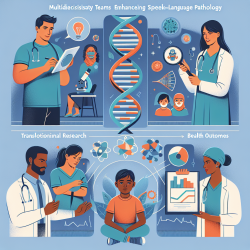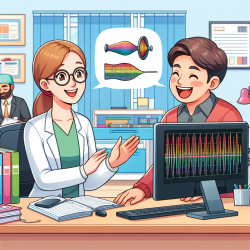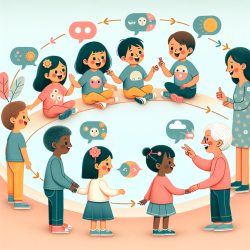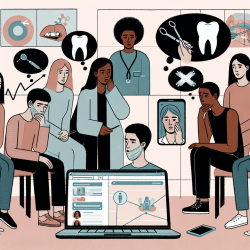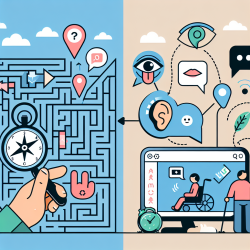Introduction
In the ever-evolving field of speech-language pathology, practitioners are constantly seeking innovative methods to improve therapeutic outcomes for children. The recent research article, "Moving Morehouse School of Medicine Translation Tx Research through MDTTs—Multidisciplinary Translational Teams," offers valuable insights into how collaborative, multidisciplinary approaches can enhance translational research and ultimately benefit underserved communities. This blog explores how these findings can be applied to speech-language pathology, encouraging practitioners to integrate these strategies into their practice.
The Power of Multidisciplinary Translational Teams (MDTTs)
MDTTs are collaborative groups that bring together researchers from various disciplines to address complex health issues. At Morehouse School of Medicine, these teams include not only basic and clinical researchers but also student learners and community members. This inclusive approach ensures that research is not only scientifically robust but also socially relevant and impactful.
For speech-language pathologists, adopting an MDTT approach means collaborating with professionals from fields such as psychology, education, and social work. This collaboration can lead to more comprehensive assessments and interventions, addressing the multifaceted needs of children with communication disorders.
Data-Driven Decision Making
One of the key takeaways from the Morehouse SOM research is the emphasis on data-driven decision-making. By utilizing data from various disciplines, MDTTs can develop more effective and targeted interventions. In speech-language pathology, this means using evidence-based practices that are informed by the latest research across fields.
Practitioners can leverage data from educational outcomes, psychological assessments, and social factors to tailor interventions that address the unique needs of each child. This holistic approach not only improves therapeutic outcomes but also empowers families and communities to support children's development.
Enhancing Community Engagement
The inclusion of community members in MDTTs highlights the importance of community engagement in research and practice. For speech-language pathologists, this means actively involving families and community stakeholders in the therapeutic process. By understanding the cultural and social contexts of the children they serve, practitioners can develop more culturally responsive interventions.
Community engagement also facilitates the dissemination of research findings and best practices, ensuring that knowledge is shared and applied in real-world settings. This collaborative approach fosters trust and builds stronger partnerships between practitioners and the communities they serve.
Encouraging Further Research
The research conducted by Morehouse SOM underscores the need for ongoing research and innovation in health sciences. Speech-language pathologists are encouraged to engage in research activities, either independently or as part of MDTTs, to contribute to the growing body of knowledge in the field.
By participating in research, practitioners can stay informed about the latest developments and apply new findings to their practice. This commitment to continuous learning and improvement is essential for advancing the field and improving outcomes for children.
Conclusion
The integration of MDTTs into speech-language pathology practice offers a promising pathway for enhancing therapeutic outcomes and advancing health equity. By embracing collaborative, data-driven approaches, practitioners can better address the complex needs of children with communication disorders. As we continue to explore and implement these strategies, we move closer to achieving our goal of creating positive, lasting impacts on the lives of children and their communities.
To read the original research paper, please follow this link: Moving Morehouse School of Medicine Translation Tx Research through MDTTs—Multidisciplinary Translational Teams.
